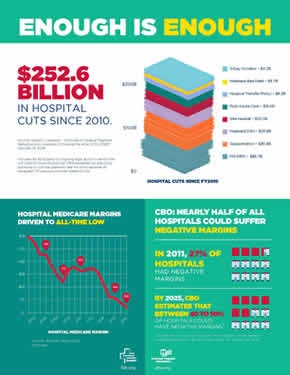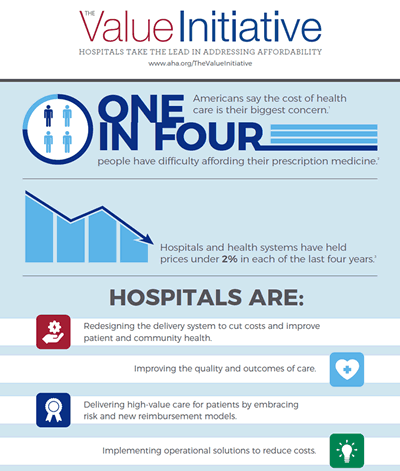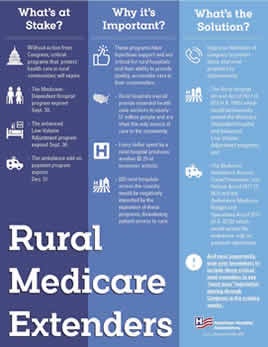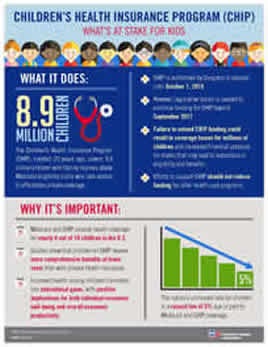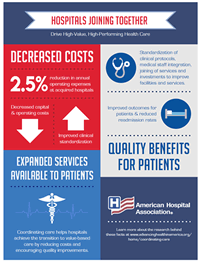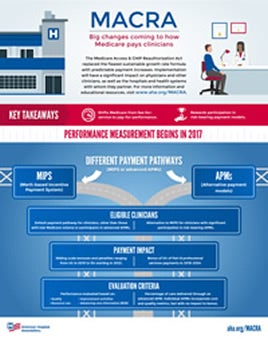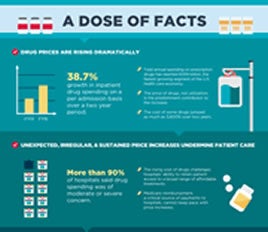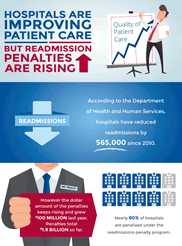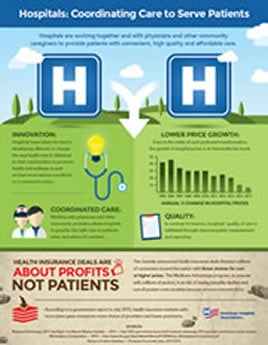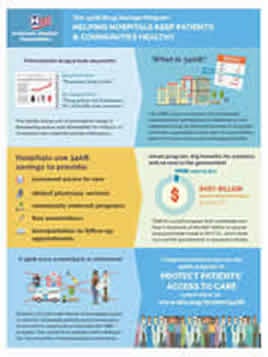AHA Infographics
AHA Infographics help illustrate key issues of importance to the field and tell the hospital story.
|
|
Enough is EnoughThis infographic highlights the new hospital reductions since 2010 that total $252.6 billion. |
The Value InitiativeThis infographic highlights how hospitals and health systems are taking the lead in addressing affordability. |
|
|
|
Rural Medicare ExtendersThisinfographic illustrates the importance of rural hospitals and the role they play in providing essential health care services to millions of Americans. The AHA is urging Congress to extend vital programs that help provide access to health in rural communities.
|
Children’s Health Insurance Program (CHIP)This new infographic illustrates the importance of continued funding for the Children’s Health Insurance Program (CHIP). Failure to extend CHIP funding could result in coverage losses for millions of children and increased financial pressure for states that may lead to reductions in eligibility and benefits. |
|
|
|
Coordinating CareHospitals joining together drive high-value, high-performing health care. |
MACRA: Big changes are coming to how Medicare pays cliniciansThe Medicare Access & CHIP Reauthorization Act replaced the flawed sustainable growth rate formula with predictable payment increases. Implementation will have a significant impact on physicians and other clinicians, as well as the hospitals and health systems with whom they partner. For more information and educational resources, visit www.aha.org/MACRA |
|
|
Drug Pricing: A Dose of FactsDrug pricing is rising dramatically. Unexpected, irregular, and sustained price increases undermine care.
|
|
|
|
Hospitals are Improving Patient Care but Readmission Penalties are RisingThis new infographic illustrates the impact of the Hospital Readmission Reduction Program (HRRP). While hospitals and health systems continue to improve patient care, readmissions penalties continue to rise. |
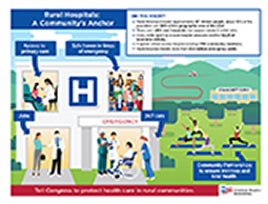 |
Rural Hospitals: A Community’s AnchorRural hospitals provide essential health care services to nearly 51 million people. Because of their size, modest assets and financial reserves, and higher percentages of Medicare patients, small and rural hospitals disproportionately rely on government payments. |
Hospitals: Coordinating Care to Serve PatientsHospitals are working together and with physicians and other community caregivers to provide patients with convenient, high quality and affordable care. |
|
|
The 340B Drug Pricing Program Basics340b Drug Pricing Program helps hospitals keep patients and communities healthy. Congress must preserve the 340B program to protect access to care.
|


